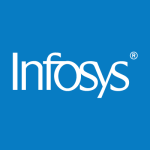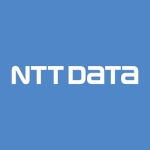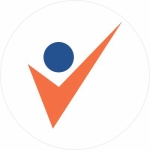What is our primary use case?
My experience was predominantly Pega Robotic solutions. I worked as an individual contributor with the developers. And I worked with the team, I led a team of five members in the last organization.
We worked in insurance. My last couple of projects were in insurance. It is mostly back-end process automation, like manual tedious tasks. One of the latest use cases we worked on was for creating third-party cases for dubious claims. Every insurance agency has an investigative third-party company that investigates dubious claims. Every time we have to log a claim, it was a very tedious task. Previously, each day, users would log about 150 claims with the third party and each one would take five to six minutes. We have automated this process.
What is most valuable?
The data entry and the automation of data entry are the most valuable aspects of the product. It was very smooth and very seamless to create automations. There was no scope for any errors and it was really error-free. That really helped us.
The initial setup was pretty easy.
What needs improvement?
There aren’t many areas for improvement. The process itself was really fine. There was no unnecessary jargon and unnecessary steps.
In one of the past projects, however, I observed they made it unnecessarily complex by, let's just say, exporting a screenshot at the end of each step which was cumbersome - especially when you could just save it in a drive locally or a shared drive. Extra necessary steps just make the automation complex. You really need to think out the process and simplify as much as possible to avoid complexity.
I would like to see some features improved that are already in there. One thing is the ease of deployment. They have integrated the deployment. They have tied the deployment with the Pega BPM product, the robot manager. You need to have the BPM installed. On top of that, you need to install this robotic manager solution. I understand that they want to tie their products together and make customers use both or all of their products in one suite; however, it can be annoying. It makes things unnecessarily complex. It would have been great if they just provided a standalone deployment system.
Features-wise, I'd like to see the OCR Optical Character Recognition. Pega is way behind its competitors in terms of OCR implementation and OCR capabilities. I'd like to see that improve. I haven't personally tried out many OCR solutions, however, on a proof of concept level, we did a few things and there is significant room for improvement there.
For how long have I used the solution?
I've been working with RPA solutions for about five years now. I’ve used Pega from the beginning. My entire RPA experience was predominantly with Pega Robotics and also WinAutomation. It’s been around four years now.
What do I think about the stability of the solution?
The solution was stable. There were no bugs or glitches and it didn’t crash or freeze. It was reliable.
What do I think about the scalability of the solution?
Just in the UK, there were about seven to eight people using the solution. It is not done 24 hours a day. There are no dedicated resources. Manually, we may work on it for one to two hours a day. Once it’s deployed, just one or two machines are needed to run the solution.
I have found the solution to be scalable.
Pega Robotics itself makes solutions really scalable. If you want to integrate it into this process with existing automation, you could just plug in this project to the existing ones. The scalability is really good.
How are customer service and support?
I personally have dealt with multiple issues and have gotten support from them. The response time is definitely quick. The turnaround time is good. However, when solutions get tricky, where the answer is not straightforward, and there is research that needs to be done, they take time. That is quite understandable. However, it would've been great if solutions were provided quicker. You don't reach out to them unless it is absolutely essential. First, you try to fix it internally. Once you reach out to them, it’s vital to get a quick resolution. Therefore, that turnaround time is imperative.
How would you rate customer service and support?
Which solution did I use previously and why did I switch?
I also have experience with WinAutomation.
How was the initial setup?
This use case itself is not that complex, which meant the setup was easy. It is pretty much a straightforward solution. It is A to B to C. There were no exceptions. On paper, it was a very good solution with a good process and a very stable process at that, which made things easy. Some are relatively easy to implement. They vary. I’ve had others that were harder in the past.
The last project was entirely an individual project. For the deployment, we tested along with the user. We did user acceptance testing. Once it was approved by everyone, we did a pilot run, and then we handed this over to the deployment team. They deployed it. They were a team of six or seven members. They handled setups individually as well. Typically there are not more than three hands on an entire solution. Once the solution was handed over to the client, it took them a day or two to set everything up.
Maintenance is handled via tickets. If there are any improvements to be made, we get tickets and resolve the issue. The engineers typically work on the solution and fix anything. Upgrades depend on the ticket's priority. It’s allocated to whoever has time to pick it up and action the maintenance.
What was our ROI?
The ROI is good. RPA, in general, provides a good return on investment. Pega Robotics is not an exception. They’re exceptionally good
What's my experience with pricing, setup cost, and licensing?
Licensing is based on the number of machines that you deploy it on. Usually, it is based on the other products you buy per anum or per machine. In Pega Robotics, it is based on the number of solutions you deploy and the number of times you run. The cost is variable. My previous client worked based on this hourly model, the number of robots and the number of solutions that are run. They also provided per machine.
Pega doesn't just provide these robotic solutions. It comes with their BPM products as well. It depends on what the client uses. If the client uses this along with the BPM products, They might get added discounts, et cetera. Every contract is unique.
What other advice do I have?
I’m a customer and end-user.
We started with the eighth version. The last one I used was 19.1. Until the latest build from February, we used the 19 version, the 19.1s. We stopped using the solution in February.
I’d rate the solution seven out of ten.
If a person is familiar with the .NET framework, it will be a great visual studio in general. Plus, picking up Pega Robotics will be very easy for them. It’s good in general to brush up on programming skills, along with Pega Robotics. If you need to add capabilities out of the scope or out of the realm of abilities of the tool, programming is essential to customize your solution.
Disclosure: My company does not have a business relationship with this vendor other than being a customer.


















